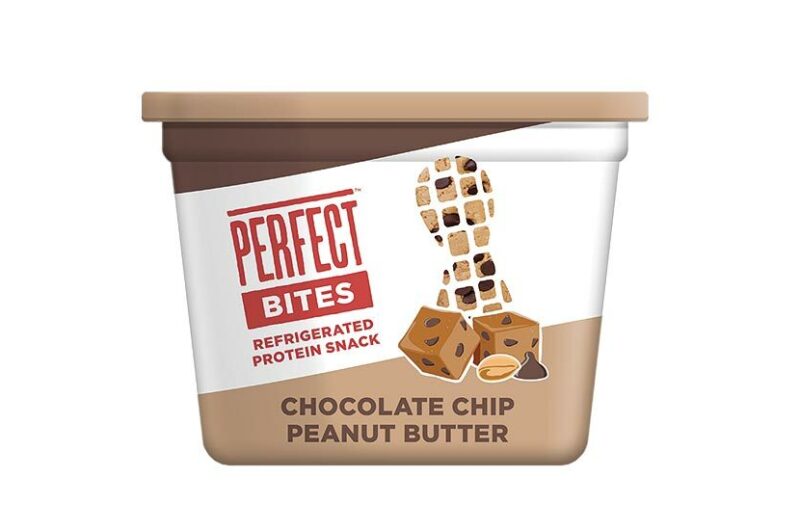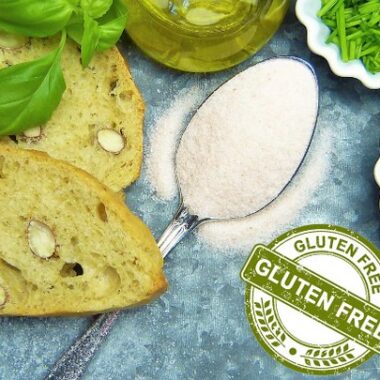The snack industry has long been a cornerstone of the global food market, satisfying cravings and providing convenience for billions of consumers. Traditionally dominated by legacy brands peddling salty chips, sugary cookies, and processed treats, the sector is undergoing a seismic shift. Today, innovative food companies are redefining what it means to snack—blending health consciousness, sustainability, bold flavors, and technology to meet the evolving demands of modern consumers. This article delves into the trailblazers transforming the snack industry, highlighting their strategies, products, and impact.
The Snack Industry’s Evolution
Snacking has become more than just a between-meal indulgence; it’s a lifestyle. According to a 2023 report by NielsenIQ, the global snack market is projected to reach $700 billion by 2026, driven by changing consumer habits—think on-the-go lifestyles, remote work, and a growing preference for healthier, ethically sourced options. Millennials and Gen Z, in particular, are pushing the boundaries, demanding snacks that align with their values: plant-based ingredients, minimal processing, and eco-friendly packaging.
Enter the disruptors—food companies that are challenging the status quo. These innovators range from startups to established players pivoting to meet new trends. Below, we explore some of the most influential companies reshaping the snack industry as of March 2025.
1. Beyond Meat: Plant-Based Snacking Goes Mainstream
While Beyond Meat is best known for its plant-based burgers, its foray into the snack industry has turned heads. In 2024, the company launched Beyond Jerky, a collaboration with PepsiCo, blending its protein-packed, meat-free expertise with snackable convenience. Made from pea and mung bean proteins, Beyond Jerky offers the savory, chewy experience of traditional beef jerky without the environmental footprint or cholesterol.
Why It’s a Game-Changer
- Health Appeal: With 10 grams of protein per serving and no artificial preservatives, it caters to fitness enthusiasts and health-conscious snackers.
- Sustainability: Producing plant-based jerky emits 90% fewer greenhouse gases than traditional meat jerky, per a 2024 lifecycle analysis by Beyond Meat.
- Flavor Innovation: Options like Spicy Chipotle and Teriyaki elevate the jerky experience beyond bland vegan stereotypes.
Beyond Meat’s entry into snacking signals a broader trend: plant-based isn’t just for meals—it’s for anytime cravings. Competitors like Jack Link’s have taken note, rolling out their own plant-based lines, but Beyond’s brand recognition and scale give it an edge.
2. Perfect Snacks: Refrigerated Protein Bars Redefine Freshness
Perfect Snacks carved a niche with its refrigerated protein bars, launched in 2011 by the Keith family. Unlike shelf-stable, chalky bars, Perfect Bars use a cold-chain distribution model, blending nut butters, honey, and superfoods for a fresh, chewy texture. Acquired by Mondelez International in 2019, the company has since expanded into bites and nut butter cups, doubling down on its “fresh-from-the-fridge” ethos.
Why It’s a Game-Changer
- Texture and Taste: The refrigerated approach avoids the processed feel of traditional bars, appealing to snackers who crave real food.
- Nutrition: With up to 17 grams of protein and organic ingredients, it bridges the gap between indulgence and wellness.
- Market Expansion: By 2025, Perfect Snacks has penetrated convenience stores and gyms, making fresh snacking more accessible.
Perfect Snacks proves that innovation doesn’t always mean new ingredients—it can mean rethinking how snacks are stored and delivered. Its success has inspired competitors like RXBAR to experiment with refrigerated offerings, signaling a shift toward “fresh” as a premium snack attribute.
3. Hippeas: Chickpea Puffs with a Purpose
Hippeas burst onto the scene in 2016 with its organic chickpea puffs, a lighter, crunchier alternative to cheese puffs. By 2025, the brand has become a poster child for socially conscious snacking, emphasizing regenerative agriculture and donating a portion of profits to food equity initiatives.
Why It’s a Game-Changer
- Healthier Crunch: Made from chickpeas, Hippeas offers fiber and plant-based protein, with 50% less fat than traditional puffs.
- Bold Flavors: Varieties like Vegan White Cheddar and Sriracha Sunshine keep tastebuds engaged without artificial additives.
- Sustainability: Partnering with Farm Africa, Hippeas supports farmers adopting climate-smart practices, reducing its supply chain’s carbon footprint.
Hippeas’ vibrant branding and do-good mission resonate with younger consumers who want snacks that taste good and feel good. Its growth—now available in over 40,000 U.S. stores—shows how purpose-driven brands can compete with giants like Cheetos.
4. Omsom: Snackable Sauces and Asian-Inspired Bites
Omsom, founded by Vietnamese-American sisters Vanessa and Kim Pham, started as a direct-to-consumer sauce company in 2020. By 2025, it’s disrupting snacking with its Snackable Starter Kits—think single-serve packets of bold Southeast Asian sauces paired with crispy rice crackers or dried veggie chips.
Why It’s a Game-Changer
- Cultural Authenticity: Flavors like Thai Larb and Filipino Sisig bring underrepresented cuisines to the snack aisle.
- Convenience: Portable and mess-free, these kits cater to desk lunchers and travelers.
- Customization: Consumers can mix and match sauces with bases, fostering a DIY snack experience.
Omsom’s success lies in its rejection of watered-down “fusion” flavors, instead celebrating unapologetic spice and umami. Its expansion into retail giants like Whole Foods reflects a growing appetite for global tastes in snack form.
5. LesserEvil: Clean Ingredients, Big Impact
LesserEvil has been quietly revolutionizing popcorn and puffs since 2005, but its 2024 rebrand and product launches catapulted it into the spotlight. Using organic, non-GMO ingredients and coconut oil instead of industrial seed oils, LesserEvil offers snacks like Himalayan Pink Salt Popcorn and Space Balls (intergalactic-themed puffs for kids).
Why It’s a Game-Changer
- Transparency: Every ingredient is listed in bold, appealing to label-reading skeptics.
- Minimal Processing: Air-popped popcorn and simple seasonings avoid the chemical aftertaste of mass-market snacks.
- Eco-Packaging: By 2025, LesserEvil has shifted to compostable bags, reducing plastic waste.
LesserEvil’s mantra—“We’re not perfect, but we’re trying”—resonates with consumers tired of greenwashing. Its sales surged 35% in 2024, proving that clean snacking can scale without sacrificing flavor.
6. Unreal Snacks: Candy, Reimagined
Unreal Snacks is on a mission to “unjunk” candy, offering chocolate gems, peanut butter cups, and coconut bars with less sugar and no artificial dyes. Launched in 2012 by two brothers inspired by a Halloween sugar overload, Unreal has gained traction by 2025 as a guilt-free indulgence.
Why It’s a Game-Changer
- Sugar Reduction: Using cane sugar and natural sweeteners, Unreal cuts sugar by 30-50% compared to traditional candy.
- Premium Ingredients: Fair-trade chocolate and organic coconut elevate quality without jacking up prices.
- Nostalgia Factor: Mimicking classics like M&M’s and Reese’s, Unreal taps into childhood memories with a modern twist.
Unreal’s growth—now stocked in Target and CVS—shows that sweet snacks can evolve beyond the junk food label, appealing to parents and adults alike.
7. That’s it.: Fruit Bars That Keep It Simple
That’s it. has mastered the art of minimalism since 2012, offering fruit bars with just two ingredients: fruit and… that’s it. By 2025, the company has expanded into mini bars, truffles, and veggie blends, all while sticking to its no-added-sugar ethos.
Why It’s a Game-Changer
- Simplicity Wins: With no preservatives or fillers, it’s a snack parents trust and kids love.
- Portability: Lightweight and shelf-stable, it’s a go-to for hikers and busy professionals.
- Market Reach: Available in Starbucks and airports, That’s it. has mainstreamed fruit-based snacking.
That’s it. proves that less can be more, carving out a $50 million slice of the snack market by focusing on what’s not in the product.
8. Mid-Day Squares: Functional Chocolate for the Hustle
Mid-Day Squares, founded in 2018 by three Canadian entrepreneurs, markets itself as “the snack for the grind.” These raw, vegan chocolate squares pack protein, fiber, and adaptogens like ashwagandha to combat afternoon slumps.
Why It’s a Game-Changer
- Functional Benefits: Beyond taste, it promises sustained energy without the crash.
- Direct-to-Consumer Roots: A strong online presence and cheeky social media keep it connected to Gen Z.
- Texture Play: Chunky, fudgy squares stand out in a sea of brittle bars.
By 2025, Mid-Day Squares has expanded into U.S. retailers like Sprouts, blending indulgence with purpose to snag a loyal following.
Trends Driving the Change
These companies aren’t operating in a vacuum—they’re riding broader waves reshaping the snack industry:
- Healthification: Consumers want nutrient-dense snacks, not empty calories. Protein, fiber, and superfoods are now table stakes.
- Sustainability: From regenerative farming to biodegradable packaging, eco-consciousness is a competitive edge.
- Flavor Adventure: Global cuisines and spicy profiles are replacing bland standbys.
- Tech Integration: Subscription models, AI-driven flavor development, and smart vending machines are enhancing accessibility.
Challenges Ahead
Disruptors face hurdles: scaling production without compromising quality, competing with the marketing budgets of giants like Frito-Lay, and navigating supply chain woes. Regulatory scrutiny over health claims and rising ingredient costs also loom large. Yet, their agility and consumer loyalty provide a buffer against these pressures.
The Future of Snacking
By 2030, the snack industry could look unrecognizable. Imagine 3D-printed protein bites tailored to your DNA, or snacks infused with mood-boosting probiotics. The companies highlighted here are laying the groundwork, proving that innovation doesn’t just mean new products—it means rethinking the entire snacking experience.
From Beyond Meat’s plant-based jerky to Mid-Day Squares’ functional chocolate, these trailblazers are turning a once-sinful category into a space for health, ethics, and creativity. As consumer tastes evolve, one thing is clear: the future of snacking is bold, diverse, and deliciously disruptive.


















